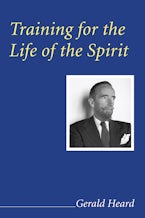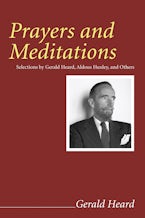- Home
- social science
- history
- The Source of Civilization
The Source of Civilization
by Gerald Heard
Imprint: Wipf and Stock
"…full of fascinating facts and significant implications…an inexhaustible well of living water." The New York Times
"Man has an inner life as complicated and challenging as the outer world. During most of his history advances in one sphere have been balanced by equal advances in the other. The problem of uneven, uncompensated progress in understanding and controlling the powers of nature did not arise in an acute form until the mind fissured into a critical and analytic conscious intelligence insulated from contact with the large unconscious mind. In order to cope with this situation man needs to learn and practice deliberate psychological techniques. Is there evidence that he has done so? Yes, answers Mr. Heard…" Rev. Edmund A. Opitz
Gerald Heard (1889–1971) was a well-known author, philosopher, and lecturer. Trained as a historian at Cambridge, he served as the BBC’s first science commentator. Later in California he founded and directed Trabuco College, which advanced comparative-religious studies. His broad philosophical themes and scintillating oratorical style influenced many people. Heard wrote thirty-eight books, including his pioneering academic works, several popular devotional books, and a number of mysteries.
“…full of fascinating facts and significant implications…an inexhaustible well of living water.” The New York Times
“Man has an inner life as complicated and challenging as the outer world. During most of his history advances in one sphere have been balanced by equal advances in the other. The problem of uneven, uncompensated progress in understanding and controlling the powers of nature did not arise in an acute form until the mind fissured into a critical and analytic conscious intelligence insulated from contact with the large unconscious mind. In order to cope with this situation man needs to learn and practice deliberate psychological techniques. Is there evidence that he has done so? Yes, answers Mr. Heard…” Rev. Edmund A. Opitz







